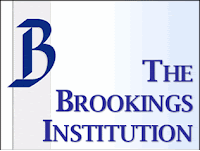Enabling Personalized Medicine through Health Information Technology

On January 28, 2011 the Center for Technology Innovation at Brookings hosted a policy discussion focused on the challenges of enabling personalized cheap cialis, as well as the policy and operational changes that would facilitate connectivity, integration, reimbursement reform and secondary analysis of information. Vice President and Director of Governance Studies Darrell West presented key findings and recommendations from his paper Enabling Personalized Medicine through Health Information Technology about the public policy actions needed to ensure that health information technology facilitates the adoption of personalized medicine in the U.S. healthcare system. David Brailer, chairman of Health Evolution Partners and the first National Health Information Technology Coordinator during the Bush administration, delivered the keynote address. Afterwards speakers took questions from the audience. The podcast is below:
"With federal officials pursuing the goal of a personal human genome map under $1,000 in five years (White House, 2010), it is possible to envision a future where treatments are tailored to individuals’ genetic structures, prescriptions are analyzed in advance for likely effectiveness, and researchers study clinical data in real-time to learn what works," said Mr. West in the Executive Summary of the report.
"Implementation of these regimens creates a situation where treatments are better targeted, health systems save money by identifying therapies not likely to be effective for particular people, and researchers have a better understanding of comparative effectiveness," he adds, citing the PCAST Report.
The summary goes on to say, "Interoperability represents a major challenge because of the difficulty of integrating data from different sources. If researchers and healthcare providers are not able to exchange information, it raises the cost of health care and makes it difficult to learn in real-time. A considerable amount of medical information is collected, but too little of it is integrated or put into data bases that are usable for research or public health purposes."
The report identifies three revolutions and how they affect healthcare:
- The Medical Delivery Revolution: New Actors and New Relationships A shift from a hierarchical delivery system to one that features greater transparency, collaboration, and patient involvement with more more empowered relationship between primary care doctors and their patients.
- The Digital Revolution and Ways to Convert Data into Knowledge An explosion of digital resources available over the Internet for patients as well as physicians.
- Genomics and the Impact on Medical Care The work of the Human Genome Project and further research has established links between gene structures, human illnesses, treatment effectiveness, and adverse effects.
...